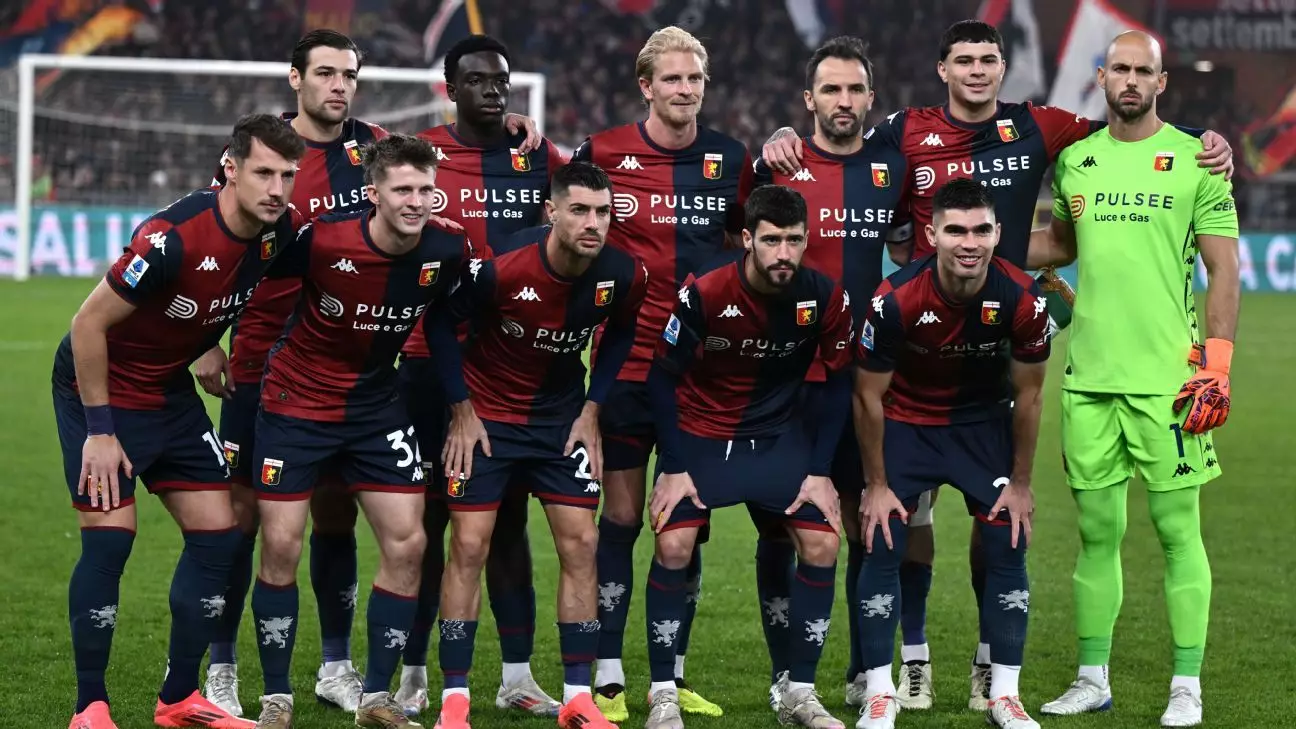Genoa, one of the oldest football clubs in Italy, has attracted the attention of multiple U.S. investors amid a significant shift in its financial and operational structure. The current owners, struggling under economic pressures leading to the loss of their multi-club portfolio to a major creditor, have set a selling price between €150 million and €170 million ($180 million). The involvement of the investment bank Moelis & Company signifies a serious intent to find potential buyers, emphasizing the club’s newfound stability and growth potential compared to other distressed assets in the ownership of 777 Partners.
Striking a Balance: Risks and Opportunities
Unlike other clubs under the ownership of 777 Partners, such as Standard Liege and Vasco da Gama—both facing significant financial challenges—Genoa is positioned as a more stable investment opportunity. Reports indicate that Genoa is forecasted to generate profits in the upcoming 2023-24 season before interest, taxes, depreciation, and amortization. This financial turnaround has been fueled by aggressive restructuring efforts led by CEO Andres Blazquez. The club’s proactive stance in addressing past financial losses, including €42.3 million in 2021 and €61.7 million in 2022, sets a promising precedent for potential investors seeking a more stable asset.
A Culture Shift: Coaching Changes and Strategic Moves
In a bid to energize the team’s performance and capitalise on their recent financial gains, Genoa has made a significant coaching change, replacing Alberto Gilardino with Patrick Vieira. This decision may reflect a broader cultural shift within the club, aiming to enhance competitive performance rather than merely maintaining a sound financial standing. Such strategic moves are pivotal in steering the club toward reclaiming its historic prominence in Italian football, showcasing a commitment to results that aligns with the expectations of potential stakeholders.
Genoa’s remarkable ability to navigate complex financial terrain has attracted the eyes of overseas investment funds. Recent transfers, including significant sales of players such as Mateo Retegui and Radu Dragusin for a collective fee surpassing €68 million, demonstrate the club’s proficiency in player trading—an essential asset for any owner considering investment. Additionally, their respectable finish in 11th place last season, the best among newly promoted teams in Europe’s elite leagues, adds to their appeal.
As the sale process unfolds, the identity of interested U.S. parties remains undisclosed, but the potential for concluding a sale by the end of the current season appears tangible. Genoa’s proactive measures to enhance its financial health and empower its squad capability signal a robust foundation for future growth. The seamless blend of historical prestige with emerging financial stability positions Genoa not just as a club to buy but as a long-term investment proposition in the evolving landscape of football finance. Thus, for investors looking to make an impactful entry into sports ownership, Genoa presents an intriguing opportunity laden with potential for both profit and the revival of a storied football legacy.
